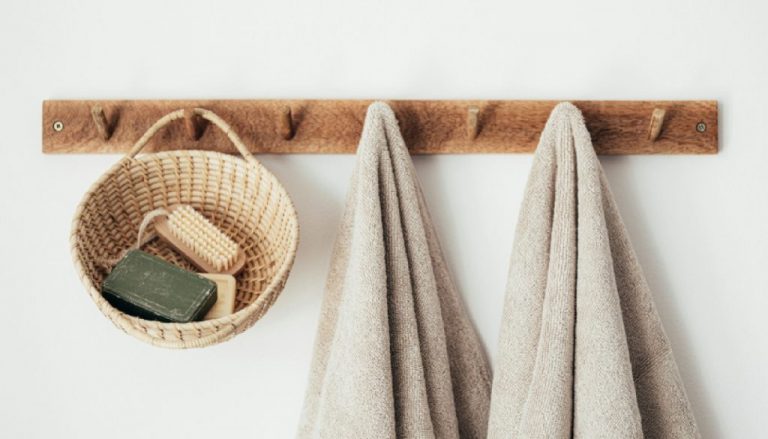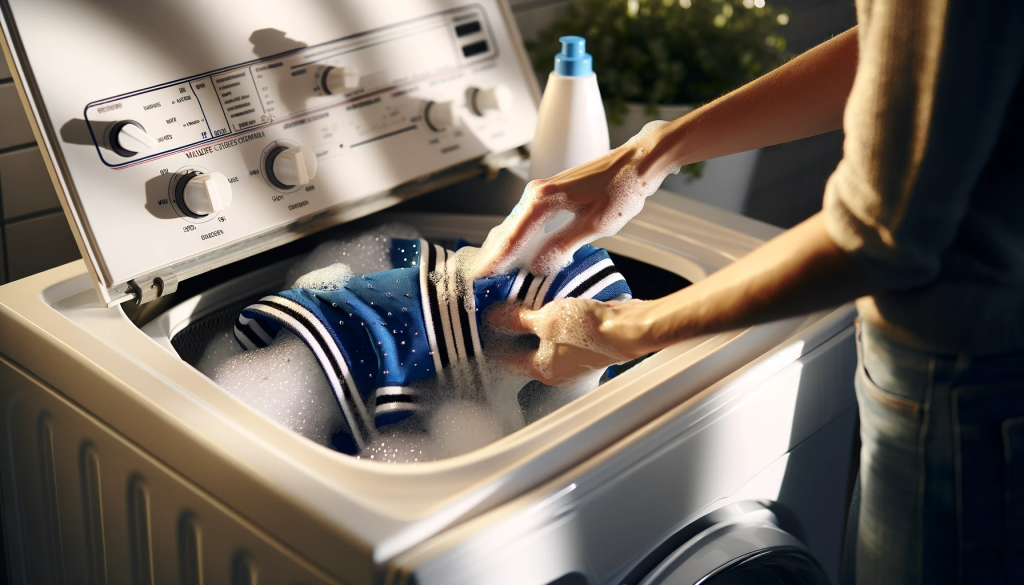Are your towels feeling more like sandpaper than a soft embrace? Dive into our tips to keep them luxuriously fluffy, making every drying-off experience delightful. Before you start, check out our exclusive home essentials collection at InktasticMerch for more ways to elevate your home comfort.
It can be truly exasperating to handle towels that feel stiff and scratchy, especially when you’re craving a soft, plush experience post-laundry. Many find it challenging to maintain that fresh, new feeling, leading to an unpleasant drying-off ritual. So, how can you preserve your towels’ softness for the long haul? This blog is here to provide practical advice on rejuvenating and maintaining your towels’ coziness with a few straightforward steps. Let’s dive in!
Key Insights
- Utilize Vinegar and Baking Soda: Introducing white vinegar or baking soda into your wash cycle can work wonders. These natural elements help eliminate detergent leftovers and soften towel fibers, ensuring they remain plush.
- Forgo Fabric Softeners: Bypass commercial fabric softeners as they tend to leave a waxy residue on towels, diminishing their absorbency and eventual softness.
- Optimal Drying Practices: Give your towels a shake pre-drying to loosen up the fibers. Utilize a low-heat tumble dry with wool dryer balls or tennis balls to achieve perfect fluffiness without harming the material.
- Moderate Detergent Usage: Stick to using half the suggested detergent amount when laundering towels. Overusing soap can result in unwanted residue, causing the fabric to become rigid once dried.
- Routine Care Suggestions: Regularly wash towels in warm water with a cup of white vinegar. Ensure towels are completely dry before storing them in well-ventilated areas to ward off mold and mildew, preserving their softness over time.
Reasons Towels Become Less Plush
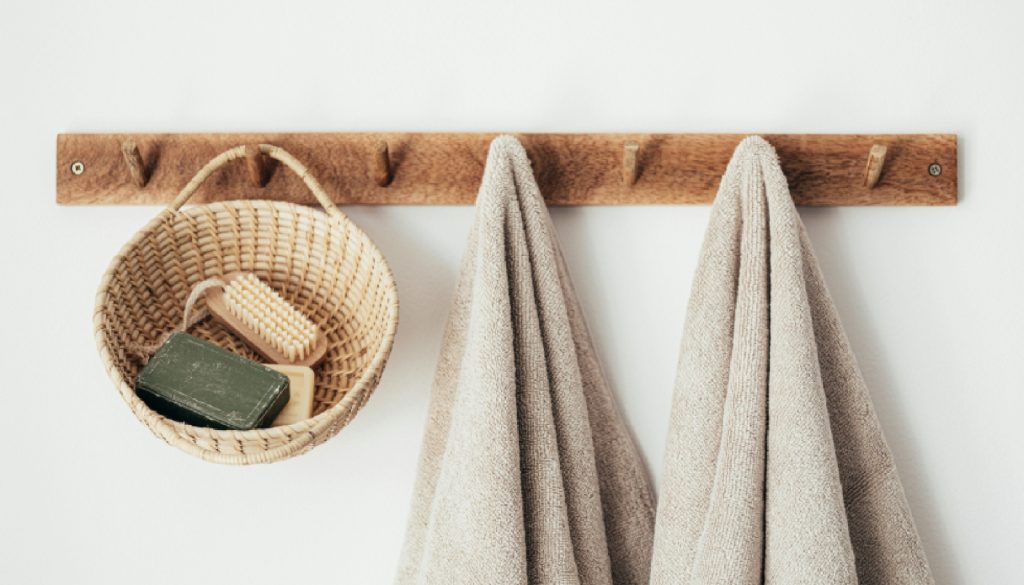
Tough water can render towels coarse. Excess detergent or conditioner usage also leaves a residue that stiffens the material.
Reasons for Tough Towels
- Hard Water: Minerals such as calcium and magnesium can accumulate on towel fibers, making them rough and uncomfortable.
- Excess Detergent/Conditioner: Overuse can result in residues that stiffen the towels.
- Incorrect Drying Methods: Overdrying or using excessive heat can damage fibers, while insufficient drying can encourage mold and mildew growth.
Hard Water
The presence of minerals like calcium and magnesium in hard water leads towels to become rough and abrasive. These elements deposit on the fibers, which over time reduces softness. In addition to texture loss, towels can also experience color dullness and material degradation due to these deposits.
Water hardness varies but invariably affects towels’ quality. Utilizing specific strategies can effectively counteract this challenge.
Excessive Detergent/Conditioner
Too much detergent can make towels where excess soap forms barriers that prevent effective water absorption, leaving the fabric stiff. Fabric conditioners can impose a waxy layer, which hampers their fluffiness.
When it comes to maintaining towel softness, using less is often more with detergents.
For soft towels, use only half the recommended detergent. Steer clear of fabric softeners; instead, try vinegar or baking soda as natural alternatives during washing.
Faulty Drying Methods
Using high heat in tumble dryers can impair cotton fibers, leaving them hard and unpleasantly textured. Overdrying eradicates softness, resulting in a dull appearance.
Conversely, insufficient drying fosters mold and mildew growth, creating smelly and unhealthy conditions that spoil towel freshness.
Effective towel drying techniques play a crucial role in keeping them soft over time.
Methods to Rejuvenate Softness
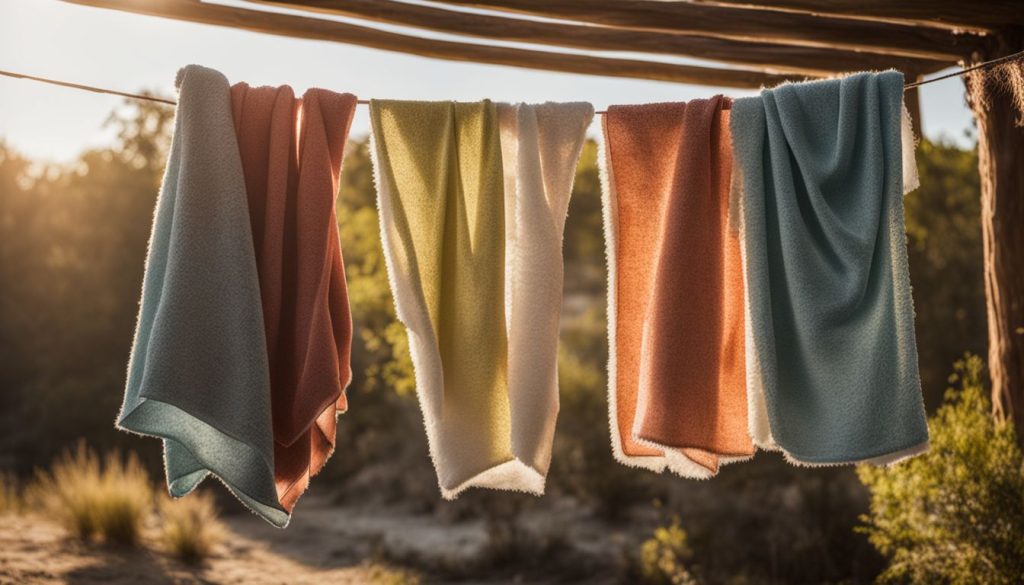
Before tossing towels in the dryer, give them a good shake. Incorporating white vinegar and baking soda during the wash results in superior softness.
Vigorously Shake Towels
By shaking your towels energetically before drying, you can separate the fibers, which creates a fluffier feel. This easy action not only shortens drying times but also preserves the towels’ softness.
Once your towels are out of the dryer or off the line, shaking them again reinforces their plush texture. This simple motion adds loft to the fibers, enhancing their comfort and durability.
Incorporate White Vinegar
Pour 1/4 cup of white vinegar into the fabric softener compartment or use a softener ball. This assists in regaining the towels’ softness by breaking down accumulated detergent. As a natural cleaner, white vinegar prevents build-up without the use of harsh chemicals.
Occasionally washing towels with a cup of distilled white vinegar keeps them cushy and pliant. Vinegar not only softens water but also heightens the performance of laundry detergents, ensuring your towels stay fresh and snugly soft after each wash.
Incorporate Baking Soda
Sprinkling a bit of baking soda during the wash cycle helps neutralize detergent residue. This natural cleanser rejuvenates towel fibers and can also serve as an alternative to oxygen bleach.
Beyond its cleaning properties, baking soda breathes new life into towel fibers, restoring their plush feel. Add about a half cup for optimal outcomes during the washing process.
Delicate Tumble Drying
Regular tumble drying can flatten and compress towel fibers, detracting from their softness. Air drying followed by a brief spin in the dryer fluffs them up wonderfully. Including wool dryer balls in the cycle keeps towels exalted and reduces static.
Shaking towels prior to drying helps them retain their luxurious feel by preventing clumping. Be cautious not to overfill the dryer to allow for efficient air flow. This procedure ensures uniform drying and stops fibers from getting rigid or compacted.
Utilize a Tennis Ball
Adding a tennis ball to the dryer fluffs towels and sheets by breaking up clumps for a softer outcome. The bouncing action of the ball generates more space between items, aiding in improved air circulation.
Adopt this approach in place of chemical softeners. The bouncing also helps prevent clumping in down jackets or duvets during washing and drying, resulting in delightfully fluffy towels without chemicals!
Guidelines for Scratch-free Towels
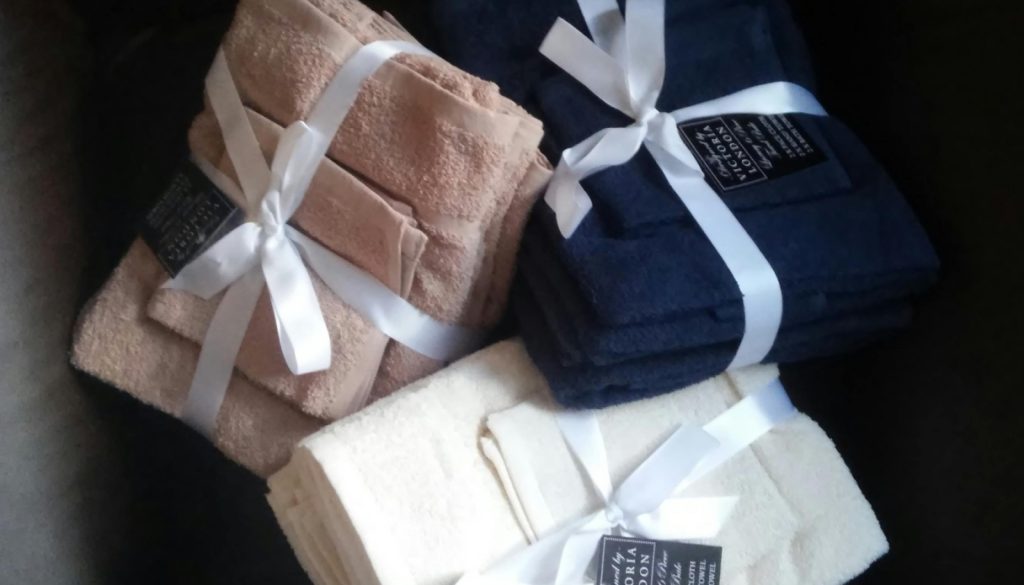
Use white vinegar or baking soda in the wash to preserve softness. Steer clear of fabric softeners, as they can compromise absorbency and lead to stiffness.
Embrace Vinegar or Baking Soda
Both vinegar and baking soda function as natural alternatives for softening fabrics. Adding half a cup of white vinegar during the rinse eliminates detergent remnants and refreshes your towels, while baking soda neutralizes odors and maintains fiber plushness by dissolving minerals.
For superior results, apply these ingredients separately in different washing cycles.
These environmentally conscious laundry alternatives not only preserve the plushness of towels but also shield delicate skin from the harmful chemicals present in conventional fabric softeners.
Avoid Fabric Softeners
Using fabric softeners can result in a residue build-up on towels, diminishing their ability to absorb moisture over time. Rather than enhancing softness, excessive use can lead to a coarser texture. If you must use fabric softener, it’s best to do so sparingly, perhaps every third or fourth wash.
Experts often recommend steering clear of fabric softeners for towels, as residue can accumulate, leading to a decrease in their long-term appeal despite a temporary softness.
Consistent Maintenance
To maintain soft and fluffy towels, wash them in warm or hot water. Using detergent in moderation is important, as an excess can cause stiffness. Introduce white vinegar or baking soda during the rinse cycle for extra softness, completely bypassing fabric softeners.
When drying, use a low tumble setting. Incorporate wool or tennis balls to revive fluffiness. Shaking out damp towels before drying can help loosen fibers and expedite the drying process.
This approach ensures that towels remain absorbent while preserving their softness over time.
Additional Tips
Why Towels Become Stiff
- Excess Soap Residue: Too much detergent leaves a film that solidifies.
- Hard Water Issues: Mineral deposits bind with fibers, making them stiff.
- Inadequate Drying: Prolonged dampness leads to rigidity.
How to Soften Towels Post-Line Drying
- Massage the Towels: Gently knead fibers to alleviate stiffness.
- Mist with Vinegar: Dislodges residue to restore softness.
Maintaining Long-Term Softness
- Regular Vinegar Use: Add a cup every six weeks to get rid of residues.
- Proper Storage: Neatly fold and place in a dry, airy space.
Suggested Laundry Products
- Oxiclean: Keeps towels white and soft.
- White Vinegar: A great substitute for fabric softeners.
- Dryer Sheets/Tennis Balls: Contribute to towel fluffiness during drying.
Optimal Storage Techniques
- Store in Cool, Dry Spaces: Prevents mold, maintains softness.
- Avoid Tight Stacking: Facilitates air circulation.
Conclusion
Achieving soft towels is effortless with a few straightforward steps. Give them a shake before laundering to aerate the fibers. Integrate white vinegar and baking soda into the wash for enhanced softness.
Avoid regular use of fabric softeners as they can accumulate. Proper drying techniques avert stiffness—check dryer settings. Maintain cleanliness of machines and use gentle detergents for optimal results.
Experience any bath to the fullest with lush, soft towels!
FAQs
1. How do I keep my towels soft after washing?
Use less detergent and refrain from using fabric softeners.
2. Is hot or cold water better for towel washing?
For optimal results, wash towels in warm water.
3. Can I dry my towels in a dryer without them becoming rough?
Absolutely, use a low heat setting and include dryer balls.
4. How frequently should towels be washed to maintain fluffiness?
Wash towels after every three to four uses.
5. Is there an ideal way to store towels to retain their softness?
Store towels in a dry, well-ventilated environment.
For more insights on enhancing your home and lifestyle, explore our Blog for a treasure trove of expert tips and inspiration.

